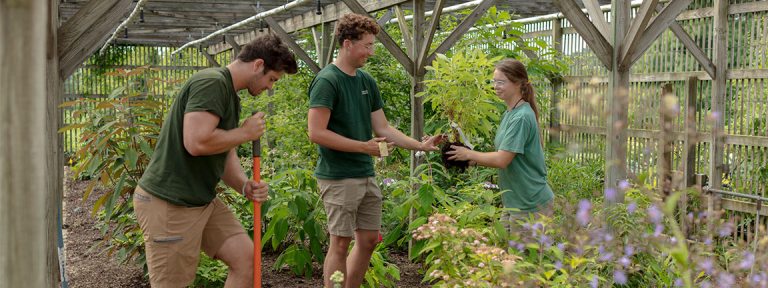Inspiring coursework, masterclasses, seminars, and workshops cover key academic concepts and career development skills.
Students engage in informative, comprehensive courses taught by Longwood staff and regional faculty, as well as participate in learning activities, including field trips to regional gardens, conferences, and symposia; lectures; and/or self-guided study. Whether students are looking to learn about crop production or landscape design, our courses prepare them for successful careers in horticulture.
Our Professional Horticulture Program is taught at the collegiate level and articulates to regional colleges and universities. Program alumni interested in continuing their education can apply their learning at Longwood towards a degree.
